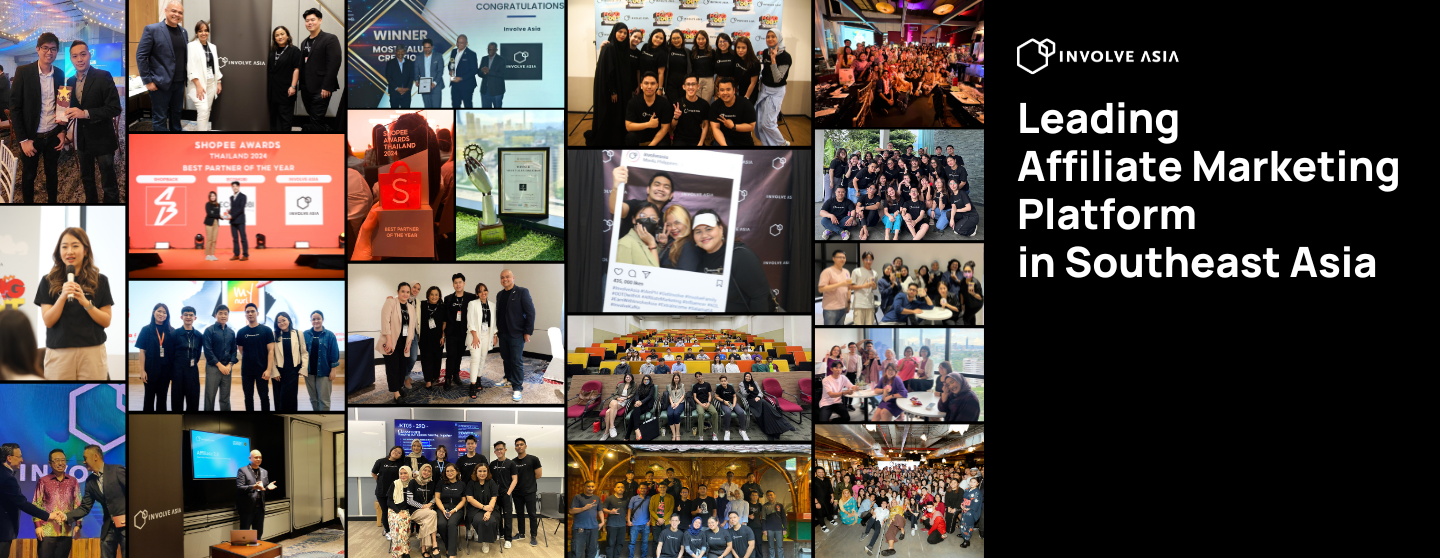

Involve Asia Technologies Sdn Bhd

Kuala Lumpur, Malaysia
September 2024
Software publishing and SaaS platforms
Service with Minor Environmental Footprint
Indonesia,
Malaysia,
Singapore,
Thailand
Involve Asia Technologies Sdn. Bhd. is a business headquartered in Kuala Lumpur, Malaysia, that is leading impactful automation solutions in the digital partnership ecosystem. Founded in 2014, Involve is backed by major venture capital firms such as Bintang Capital Partners, 500 Global, OSK Technology Ventures, and Cradle Seed Ventures and has an established presence with a team of 180 people across Southeast Asia including Malaysia, Indonesia, Philippines, Singapore, Thailand, and Vietnam. Involve Asia’s marketing technology platform enables Advertisers to grow through effective online marketing partnerships. The Company’s adaptive and evolving performance-guided solutions empower brands in the e-commerce, travel, and finance sectors to establish and grow trustworthy partnerships with Partners (content creators, publishers, people with influence) worldwide. The Company’s innovative digital solutions are powering its phenomenal growth trajectory in the advertising industry across Southeast Asia. The Company has an established presence in Malaysia, Indonesia, the Philippines, Thailand, Vietnam, and Singapore; and since inception, the Involve platform hosts over a million partnerships generating over US$3.3bil in sales for over 500 Advertisers. More information about Involve Asi
Overall B Impact Score
Governance 10.3
Governance evaluates a company's overall mission, engagement around its social/environmental impact, ethics, and transparency. This section also evaluates the ability of a company to protect their mission and formally consider stakeholders in decision making through their corporate structure (e.g. benefit corporation) or corporate governing documents.
What is this? A company with an Impact Business Model is intentionally designed to create a specific positive outcome for one of its stakeholders - such as workers, community, environment, or customers.
Workers 33.4
Workers evaluates a company’s contributions to its employees’ financial security, health & safety, wellness, career development, and engagement & satisfaction. In addition, this section recognizes business models designed to benefit workers, such as companies that are at least 40% owned by non-executive employees and those that have workforce development programs to support individuals with barriers to employment.
Community 24.0
Community evaluates a company’s engagement with and impact on the communities in which it operates, hires from, and sources from. Topics include diversity, equity & inclusion, economic impact, civic engagement, charitable giving, and supply chain management. In addition, this section recognizes business models that are designed to address specific community-oriented problems, such as poverty alleviation through fair trade sourcing or distribution via microenterprises, producer cooperative models, locally focused economic development, and formal charitable giving commitments.
Environment 13.0
Environment evaluates a company’s overall environmental management practices as well as its impact on the air, climate, water, land, and biodiversity. This includes the direct impact of a company’s operations and, when applicable its supply chain and distribution channels. This section also recognizes companies with environmentally innovative production processes and those that sell products or services that have a positive environmental impact. Some examples might include products and services that create renewable energy, reduce consumption or waste, conserve land or wildlife, provide less toxic alternatives to the market, or educate people about environmental problems.
Customers 3.3
Customers evaluates a company’s stewardship of its customers through the quality of its products and services, ethical marketing, data privacy and security, and feedback channels. In addition, this section recognizes products or services that are designed to address a particular social problem for or through its customers, such as health or educational products, arts & media products, serving underserved customers/clients, and services that improve the social impact of other businesses or organizations.